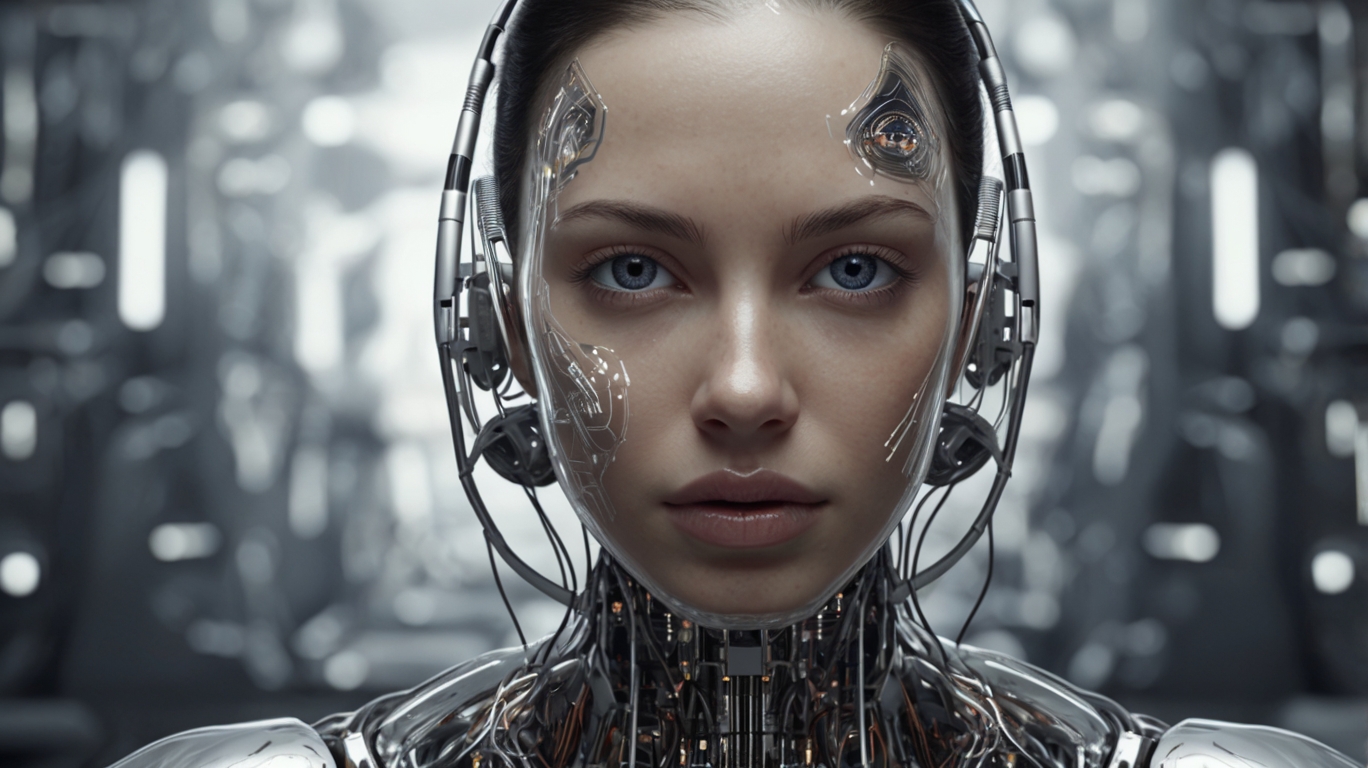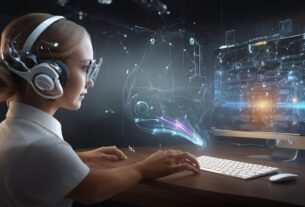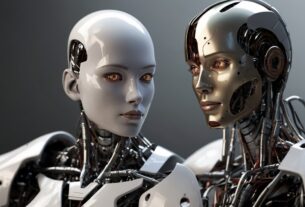Introduction
The Advancement of Artificial Intelligence:
Artificial Intelligence (AI) is no longer a concept of the distant future—it is here, and it is reshaping industries, economies, and societies at an unprecedented pace. The rapid progress of AI has led to breakthroughs in automation, healthcare, education, and even creative fields, affecting virtually every aspect of human life. This article explores how AI is advancing, the implications of this evolution, and what it means for the global future.
The Evolution of Artificial Intelligence
AI has come a long way since its inception in the mid-20th century. Early AI research focused on rule-based systems and symbolic reasoning, which had limited capabilities. However, with the rise of machine learning and deep learning, AI systems have gained the ability to learn from vast amounts of data, improve over time, and perform complex tasks with human-like efficiency.
The explosion of computational power and the availability of massive datasets have significantly contributed to AI’s advancement. Neural networks, a core component of deep learning, have enabled machines to recognize speech, translate languages, drive vehicles autonomously, and even generate human-like text and images.
AI in the Workplace: Automation and Productivity
One of the most significant impacts of AI has been in the workplace. Automation powered by AI has revolutionized industries such as manufacturing, logistics, and customer service. Robotics and AI-driven systems are now capable of performing repetitive and labor-intensive tasks with greater speed and accuracy than humans, reducing costs and increasing efficiency.
In the corporate world, AI-powered tools are streamlining operations, assisting in decision-making, and enhancing productivity. Chatbots and virtual assistants handle customer inquiries, AI-driven analytics provide valuable business insights, and automated financial systems detect fraud more efficiently than traditional methods.
However, AI-driven automation has also sparked concerns about job displacement. While some roles are being replaced by machines, new opportunities are emerging in AI development, cybersecurity, and data science. The challenge lies in reskilling the workforce to adapt to this technological shift.

AI in Healthcare: Revolutionizing Diagnosis and Treatment
The healthcare sector has greatly benefited from AI-driven innovations. AI algorithms can analyze medical images, detect diseases at early stages, and suggest personalized treatment plans. Machine learning models have been instrumental in identifying cancerous cells, predicting outbreaks of diseases, and accelerating drug discovery.
Robotic-assisted surgeries are becoming more precise, reducing the risks associated with human error. Virtual health assistants and AI-driven chatbots are providing patients with medical advice, reducing the burden on healthcare professionals, and making healthcare more accessible to remote areas.
Despite these advancements, ethical concerns persist, particularly regarding data privacy and the potential for bias in AI-driven medical decisions. Ensuring transparency and fairness in AI models remains a priority.
AI in Education: Personalized Learning and Accessibility
Education is another sector experiencing AI-driven transformation. Intelligent tutoring systems and adaptive learning platforms are personalizing education based on students’ strengths and weaknesses. AI-powered tools assess student progress in real time and offer tailored recommendations, making learning more efficient and engaging.
Additionally, AI is breaking language barriers with real-time translation, making education more accessible to non-native speakers. AI-driven speech recognition tools assist students with disabilities, enhancing inclusivity in classrooms and online learning platforms.
While AI enhances education, it also raises concerns about data security and the risk of over-reliance on technology. The balance between traditional teaching methods and AI-driven learning remains a topic of discussion among educators and policymakers.
AI in Creativity: Redefining Art, Music, and Content Creation
AI’s influence extends beyond technical fields into the realm of creativity. AI-generated art, music, and literature are pushing the boundaries of human expression. Tools like OpenAI’s DALL-E create stunning artwork, while AI-generated music compositions challenge traditional notions of creativity.
Content creation has also been transformed by AI-powered writing assistants that generate articles, stories, and even poetry. While these tools can aid human creativity, they also raise philosophical and legal questions about intellectual property and the originality of AI-generated content.
Ethical Considerations and AI Governance
With great power comes great responsibility, and AI’s rapid advancement has prompted discussions about ethics and governance. Issues such as bias in AI algorithms, data privacy, and the potential misuse of AI for surveillance and misinformation are pressing concerns.
Tech giants and governments are working to establish regulations that ensure AI is developed and used responsibly. Ethical AI frameworks emphasize transparency, accountability, and fairness to prevent discrimination and reinforce public trust in AI technologies.
The Future of AI: Opportunities and Challenges
Looking ahead, AI holds immense potential for solving some of the world’s most pressing challenges, from climate change to resource management. AI-driven predictive analytics can optimize energy consumption, enhance agricultural yields, and contribute to more sustainable urban planning.
However, challenges remain. The potential for AI to be weaponized, the risk of mass unemployment due to automation, and the widening gap between technologically advanced and developing nations pose significant concerns.
Striking a balance between AI-driven innovation and ethical responsibility will be key to ensuring that AI serves humanity positively. Governments, businesses, and individuals must collaborate to shape a future where AI enhances human capabilities rather than replacing them.
Conclusion
Artificial Intelligence is revolutionizing the world, offering unprecedented opportunities while presenting complex challenges. From transforming industries and healthcare to redefining creativity and education, AI’s impact is profound and far-reaching.
As AI continues to evolve, ensuring ethical development, transparency, and human-centered innovation will be crucial. The future of AI is not just about machines—it is about how humanity chooses to integrate and guide this powerful technology for the betterment of society. The choices made today will determine whether AI becomes a force for good or a source of unforeseen challenges in the global future.
The Advancement of Artificial Intelligence:
Frequently Asked Questions (FAQ) on Artificial Intelligence
1. What is Artificial Intelligence (AI)?
Artificial Intelligence (AI) refers to the simulation of human intelligence in machines that can learn, reason, and perform tasks typically requiring human cognitive abilities. AI is used in automation, healthcare, education, and creative fields, among others.
2. How has AI evolved over time?
AI has progressed from early rule-based systems and symbolic reasoning to machine learning and deep learning techniques. With advancements in computational power and data availability, AI systems can now learn from large datasets and perform complex tasks with high efficiency.
3. What impact does AI have on the workplace?
AI-driven automation has transformed industries by improving efficiency and reducing costs. AI-powered tools assist in decision-making, fraud detection, and customer service. However, concerns about job displacement exist, emphasizing the need for workforce reskilling.
4. How is AI used in healthcare?
AI enhances healthcare through disease detection, personalized treatment plans, robotic-assisted surgeries, and AI-driven medical chatbots. It helps in early diagnosis and improving patient care but raises concerns about data privacy and potential bias.
5. What role does AI play in education?
AI personalizes learning experiences through intelligent tutoring systems and adaptive platforms. It also aids accessibility through language translation and speech recognition tools. However, challenges such as data security and over-reliance on AI remain.
6. Can AI be creative?
Yes, AI is used in generating art, music, and written content. AI-driven tools like DALL-E create artwork, while AI-generated music and literature challenge traditional creativity norms. Intellectual property and originality concerns arise with AI-generated content.
7. What are the ethical concerns surrounding AI?
Key ethical concerns include bias in AI algorithms, data privacy, misinformation, and AI misuse for surveillance. Efforts are being made to establish responsible AI regulations to ensure transparency, fairness, and accountability.
8. What are the future opportunities and challenges of AI?
AI has the potential to address global challenges such as climate change, energy management, and sustainable urban planning. However, concerns include AI weaponization, job loss due to automation, and the technological divide between nations.
9. How can AI be used responsibly?
Responsible AI development involves transparency, ethical guidelines, and regulations. Collaboration between governments, businesses, and individuals is essential to ensure AI benefits humanity without causing harm.
10. What is the future of AI?
AI is expected to continue evolving, offering both opportunities and challenges. The focus should be on integrating AI responsibly, ensuring it enhances human capabilities rather than replacing them, and fostering a future where AI serves society positively.
read also:
Association for the advancement of Artificial Intelligence :




